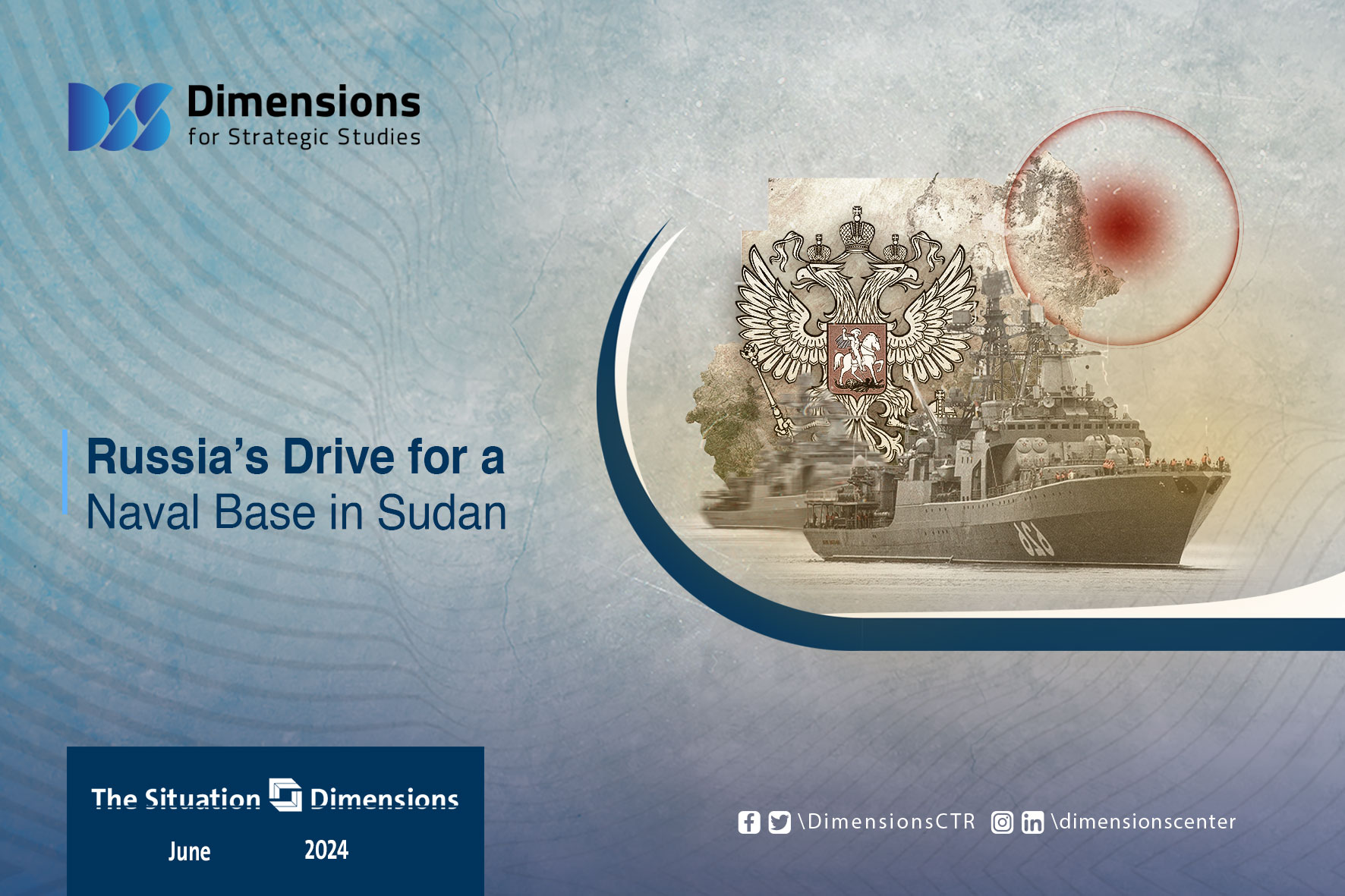
Russia’s Drive for a Naval Base in Sudan
2024-06-132556 view
On May 25, the Sudanese army’s Assistant Commander-in-Chief Lieutenant General Yasser Al-Atta announced that Moscow had asked to set up a naval refueling base on the Red Sea coast, in exchange for providing weapons and ammunition to the Sudanese army.
Al-Atta, who is also a member of the country’s Sovereignty Council, said Sudan had agreed to the proposal within a broader framework, including a strategic partnership on military, security and economic matters, including agriculture, mining and gold exploration.
Al-Atta said a Sudanese military delegation would visit Moscow soon, to be followed by a ministerial delegation headed by the Vice-President of the Sovereignty Council. After the agreement’s protocols have been agreed, army chief Abdel Fattah al-Burhan, who is Chairman of the Sovereignty Council, is expected to sign it.
The idea of establishing a Russian naval base in Sudan dates back to 2007, when Russian President Vladimir Putin proposed the idea to then-President Omar al-Bashir. Bashir welcomed the proposal and promised to study it for later approval. The two sides discussed the base further in 2017 and 2019. In October 2020, following Bashir’s ouster, Putin instructed the Russian Ministry of Defense to sign an agreement to establish a logistical services facility for the navy in Port Sudan. Moscow published a draft of the agreement at the time, but its implementation was repeatedly postponed due to Western pressure on the Sudanese government—and then by the civil war that flared between the army and the Rapid Support Forces paramilitary group from April 2023.
According to local sources in Sudan, the Sovereignty Council is preparing to sign a strategic and military cooperation deal with Russia that would allow it to establish a military logistical support base in Port Sudan, on the Red Sea coast. This would be a major development that could mark the start of a Sudan’s army shifting moving closer to Russia at the expense of Western powers and their interests in the region.
A logistical support base in Sudan could serve as Russia’s main gateway to the African continent, instead of its temporary facility in Benghazi, Libya. Since it lost the Berbera naval base in Somalia during the Soviet era, Moscow has not had a naval base on the Red Sea. Therefore, the drive for an agreement suggests that Russia wants to use the base to consolidate its influence across Africa. It would serve as another naval support base alongside the Hmeimim base in Syria’s Tartus, which it uses as a means of accessing Libya and North Africa more generally.
Pushing forward with such a deal would likely be matched by a shift in Russia’s policy towards Sudan, potentially ending or reducing Moscow’s support for the Rapid Support Forces. Russia has strengthened its presence throughout Africa since the beginning of 2024, including in Libya, where it has sent about 1,800 African Legion soldiers and thousands of tons of military supplies since March. It has also stepped up recruitment to its Africa Corps, for deployment in Burkina Faso, Niger, and Mali.
The Sudanese-Russia agreement stipulates that the base could host up to four Russian ships at a time, including nuclear-powered vessels. The Sudanese military would be responsible for its external security, while its internal security and protection of its water borders and airspace would fall to Russia. Russia could then import and export any weapons, ammunition and equipment necessary for the base, as well as establishing temporary military facilities in Sudan to protect it.
The base is likely to stir up tensions with Western powers active in the region, especially the United States, which has several naval assets deployed in the Red Sea.
Those tensions could be further fanned by enhanced Russian-Iranian cooperation in Sudan, especially given reports that Iran has offered to supply the Sudanese Armed Forces with a large number of drones to support them in their war against the RSF.
We may also see further Russian-Chinese-Iranian cooperation in the Red Sea region, such as an African repeat of the three countries’ March joint military exercises in the Gulf of Oman, sending a message to other powers that new international actors now have a presence there.
A logistical base on Sudan’s Red Sea coast would be a major prize for Russia due to its location in a strategic region for major powers, as well as its proximity to transcontinental oil pipelines in the region.





